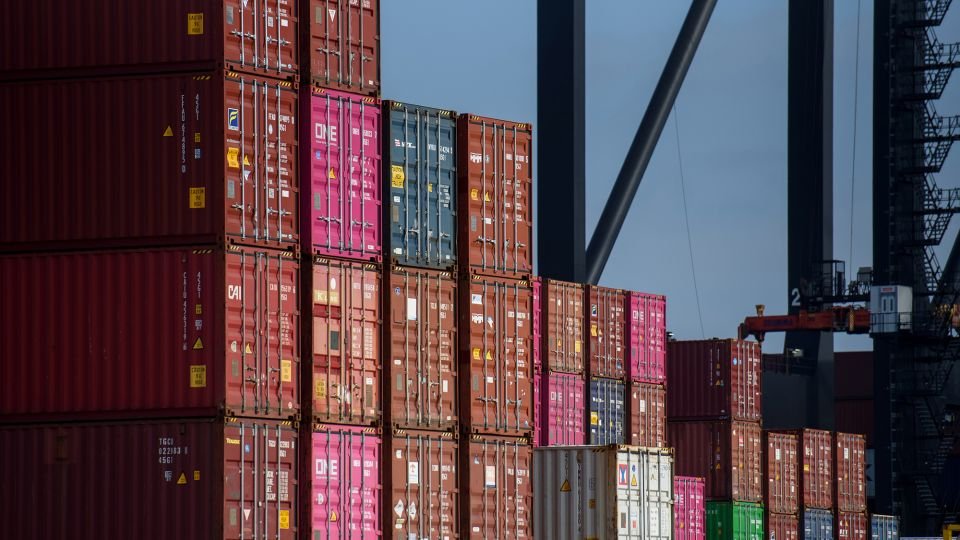Contents
The Impact of Tariffs on the US Economy
The introduction of President Donald Trump’s “reciprocal” tariffs on dozens of countries was expected to take effect today, following a three-month delay. However, this deadline has been pushed back again, creating further uncertainty for businesses and giving America’s trading partners more time to negotiate trade deals with the United States.
This postponement may come as a relief to many economists, who have long criticized tariffs for their negative impact on economies. Research suggests that high tariffs can harm the very countries that impose them, affecting both workers and consumers. While free trade can create challenges, most economists agree that high tariffs are not the solution.
The Effects of Tariffs on Inflation and Jobs
So far, Trump’s tariffs have not significantly boosted US inflation or slowed economic growth. Treasury Secretary Scott Bessent has described inflation as “the dog that didn’t bark.” However, economists warn that the effects of these tariffs may be delayed, with potential issues emerging toward the end of the year. This temporary calm could give the administration a false sense of security.
Antonio Fatas, an economics professor at INSEAD, emphasized that the benefits of free trade outweigh its negatives, even in developed countries. He pointed out that the US and Europe have both benefited from open trade policies.
How Tariffs Affect Consumers
Tariffs are essentially taxes on imports, and their most direct effect is to increase costs for producers and raise prices for consumers. According to data from the Organisation for Economic Co-operation and Development, about half of all US imports are intermediate products used in manufacturing finished goods.
Doug Irwin, an economics professor at Dartmouth College, explained that when American businesses face higher costs for imported components, it affects their overall production expenses. These increased costs are typically passed on to consumers, as importers cannot absorb the full burden of the tariffs.
During Trump’s first term, similar tariffs led to higher prices for consumers. A 2019 study by Mary Amiti at the Federal Reserve Bank of New York found that the tariffs were fully passed on to domestic prices. This trend is expected to continue with the new tariffs, as noted by Federal Reserve Chair Jerome Powell, who predicted continued increases in goods inflation.
The Economic Consequences of Tariffs
Tariffs can also reduce a country’s economic output. A 2020 study based on data from 151 countries, including the US, found that tariffs have persistent adverse effects on GDP. One reason for this is that when tariffs are high, countries may not specialize in the industries where they have a competitive advantage, leading to lower productivity.
Hugh Gimber, a global market strategist at J.P. Morgan Asset Management, highlighted that low tariffs have contributed to cheaper imports, which has kept overall US prices relatively stable since 2001. However, the rise in service costs has been significant, reflecting broader economic shifts.
Another factor is the disruption caused by uncertainty over future tariff levels. Surveys by the National Federation of Independent Business show that this uncertainty is already affecting small businesses’ willingness to invest. The share of small businesses planning capital outlays has reached its lowest level since April 2020.
Job Losses and Retaliation
Surprisingly, higher import taxes have been found to result in slightly more unemployment across countries. Irwin provided an example, noting that the steel tariffs imposed in 2018 led to job losses in downstream industries rather than gains in the steel sector itself.
A Federal Reserve study found that increased input costs from US tariff hikes in 2018-19 led to job losses in American manufacturing. Retaliatory measures from other countries also pose a risk, as higher tariffs on US exports can reduce demand for American goods.
The Costs of Free Trade
While free trade has generally benefited the global economy, it comes with certain costs. One is the loss of jobs in communities exposed to foreign competition. This phenomenon is similar to the impact of technological progress on workers, as seen in the decline of manufacturing jobs globally.
Economists suggest that providing retraining and support to affected workers is essential, drawing parallels to the concept of a just transition in the shift toward a greener economy.
Another cost is the dependency on distant manufacturers, which became evident during the pandemic. However, economists do not see tariffs as an effective way to build domestic manufacturing, preferring subsidies as a more direct tool.
The Role of Free Trade in Global Peace
Perhaps the strongest argument for free trade is its role in maintaining peace between nations. Closer trade relations create mutual dependencies, making conflict less likely. As David Kelly noted, stronger trade ties provide countries with more to lose in any potential conflict.
In conclusion, while tariffs may offer short-term political benefits, their long-term economic consequences—ranging from higher consumer prices to reduced productivity and job losses—underscore the importance of careful consideration in trade policy decisions.




